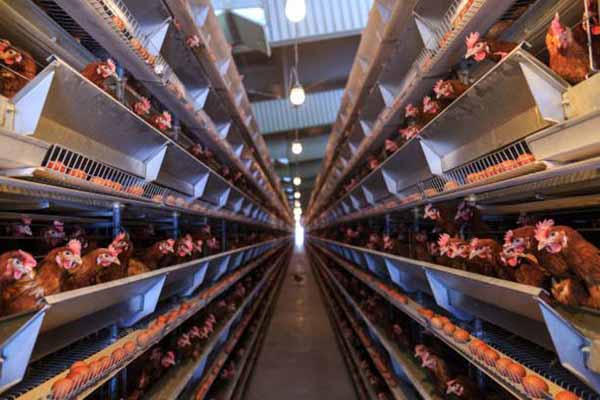How to Start Up a Chicken Farm: A Step-by-Step Guide
Time : 2025-04-18
Hey there, aspiring poultry farmers! If you’re thinking about diving into the world of chicken farming, you’ve come to the right place. Starting a chicken farm can be an exciting venture, but it’s also a complex process that requires careful planning and consideration. In this article, we’ll go through the ins and outs of starting your very own chicken farm. Let’s get cracking!
1. Identify Your Farming Goals
Before you dive into the nitty-gritty details, it’s important to understand your goals. Are you aiming for a small backyard operation or do you dream of expanding to a commercial scale? This decision will greatly impact the size of your chicken farm and the amount of time and money you need to invest.
1.1 Backyard Chicken Farm
A backyard chicken farm is a great option for those looking to start small and maintain a personal touch. It’s ideal for providing fresh eggs to your family or as a hobby.
1.2 Commercial Chicken Farm
On the other hand, if you’re looking to scale up, you’ll need to consider land, infrastructure, and a steady market. This type of chicken farm can generate income but requires significant resources and expertise.
2. Conduct Market Research
To ensure the success of your chicken farm, it’s crucial to know your market. Identify your target audience and research the demand for chicken products in your area.
2.1 Understand Local Regulations
Familiarize yourself with the local laws and regulations regarding poultry farming in your region. Some areas have restrictions on the number of chickens allowed or the location of chicken coops.
2.2 Determine Your Market Niche
Decide if you want to focus on egg production, broiler farming (chickens raised for meat), or both. Specializing in a niche can help you build a loyal customer base.
3. Plan Your Layout
Now that you have a clear vision for your chicken farm, it’s time to plan the layout. This will depend on the scale of your operation, but here are some key considerations:
3.1 Chicken Coop Design
A well-designed chicken coop is essential for the health and safety of your birds. It should be predator-proof, with enough space for your chickens to move around and access food and water.
3.2 Feeding Area
Create a separate feeding area to minimize waste and maintain clean living conditions for your chickens.
3.3 Nesting Boxes
Provide nesting boxes for your hens if you plan to collect eggs. These should be placed in a quiet and secluded part of the coop.
4. Choose the Right Chickens
The breed of chicken you choose will depend on your farming goals and climate. Here are some popular options:
4.1 Laying Chickens
Breeds like Rhode Island Reds and laying hens like Plymouth Rocks are excellent for egg production.
4.2 Meat Chickens
Broiler breeds, such as Cornish Rocks and White Rocks, are designed for meat production.
4.3 Dual-Purpose Chickens
If you want both eggs and meat, consider breeds like the Jersey Giant or Australorp.
5. Manage the Health of Your Birds
Regular health check-ups and a good diet are crucial for keeping your chickens healthy. Here’s how to ensure they stay in tip-top shape:
5.1 Diet and Nutrition
Provide your chickens with a balanced diet, including grain, protein, vitamins, and minerals. Be sure to avoid feeding them foods that are toxic to them, like avocado or chocolate.
5.2 Regular Check-ups
Schedule regular vet visits to keep your flock healthy. Address any issues promptly to prevent the spread of disease.
6. Establish Your Brand
Once your chicken farm is up and running, it’s important to establish your brand. Here are a few tips to get you started:
6.1 Create a Unique Brand Identity
Develop a memorable name and logo for your chicken farm. This will make it easier for customers to recognize and remember your brand.
6.2 Develop a Marketing Strategy
Use social media, word of mouth, and local farmer’s markets to market your products. Offer incentives, such as discounts or loyalty programs, to attract customers.
7. Stay Informed
The poultry industry is constantly evolving, so it’s important to stay informed about the latest trends, techniques, and regulations. Consider joining a local agricultural organization or attending poultry farming workshops to enhance your knowledge and network.
8. Monitor Your Farm’s Performance
Finally, keep track of your farm’s performance to identify areas for improvement. Monitor the number of eggs laid, growth rate of your meat chickens, and overall profitability.
Remember, starting a chicken farm is a challenging but rewarding journey. With proper planning, dedication, and a little luck, you’ll be well on your way to a successful operation.












